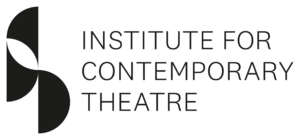
The Fair Access Fund
ICTheatre is committed to promoting equal opportunities for all applicants and all students, and we actively seek to recruit a diverse student body that is reflective of the wider community.
We believe that a diverse student body provides for a creative and dynamic community, which aligns with the ethos and mission of BIMM University.
We aim to actively support access to our courses from groups of applicants who are underrepresented in Higher Education or face financial challenges and hardship. We want a level playing field and equality of opportunity , so we have set up the Fair Access Fund to ensure students are supported during their studies.
Last academic year, BIMM University awarded over 250 low-income household bursaries to first-year students to support their transition into student life, buy equipment, or get the support they needed.
Successful applicants will receive financial support packages of up to £1,500 per academic year. While we cannot commit to payment amounts before enrolment, we aim to allocate the budget to eligible applicants. We will confirm the exact payment amount and schedule post-enrolment.
What does The Fair Access Fund aim to do?
Every student has different needs, and The Fair Access Fund aims to support successful applicants in the following areas:
- Financial support: This includes our low-income household bursary, care leaver, care experienced or estranged student bursary. This bursary is financial support for maintenance costs, including rent and is paid in instalments across the academic year.
- Course material support: This can include help to purchase instruments, hardware, reading materials or uniform to support engagement with a degree course.
- Engagement support: Specific support needs , including additional learning support or help to access the Disabled Students Allowance (DSA) or get a diagnosis for a condition.
We will provide you with a contact who will help you access the support you require. The amount and kind of support you are awarded will depend on your circumstances. Being part of this scheme does not differentiate you from other successful applicants; access to the college hardship fund and receipt of support will be confidential.
How does an applicant qualify?
Access to this fund will be prioritised in the following way:
- You must have applied and accepted an offer to study at ICTheatre in September 2024
- Be enrolling on the first year of an undergraduate degree at ICTheatre
- You must be a UK resident
- Have a full tuition fee loan in place
Our Black, Asian, or minority ethnic Access Support Fund is in place to ensure all support needs are met for students to support the transition into study. This fund is for bespoke access support and can work in conjunction with the low-income household or care experienced student’s bursary if eligibility is confirmed. Please note: the average access fund award is £200 to support with equipment, travel or access to therapeutic support on top of college provision and is a one-off payment. Students will be required to detail what support they need in their application.
To be eligible for the care leaver/care experienced bursary, the student will need to have spent at least 13 weeks of the last 5 years, in local authority care, prior to the start of their course. This could include living with foster parents, living at home with parents/guardians under the supervision of social services, living in a residential children’s home, or living in another residential setting like a school or secure unit. Evidence should detail the dates of the care experience, the local authority details, the person handling the case and their contact information.
To be eligible as estranged from their parents/guardians, the student should have had no contact with their parents/guardians for at least 12 months before the start of their course and be unlikely to have a relationship with them again. Evidence can be provided via a maintenance loan application proving estrangement.
If you are eligible for a care leaver, experienced or estranged student bursary, you will receive three payments across the academic years you study. Historically, these bursaries have been £1,500 across the academic year. Although we cannot commit to amounts before the start of term, we expect the bursary amount to be within this region. Bursary schedules and amounts will be confirmed post-enrolment.
To be eligible to access the Disabled Students Access Fund students must have a declared disability and have applied or be in the process of applying (where eligible), for Disabled Student Allowance (DSA). Evidence of diagnosis or application to the DSA is required to be uploaded on the application form. Student Services may advise on eligibility, and the impact of the declared disability on financial need.
Please note the Disabled Students Access Fund can work in conjunction with the low-income household or care experienced student’s bursary if eligibility is confirmed. Please note: the average access fund award is £200 to support with equipment, travel or access to therapeutic support on top of college provision and is a one-off payment.
A mature student is aged 21 years old and above at the start of the course. The Mature Students Access Fund can work in conjunction with the low-income household or care-experienced student’s bursary if eligibility is confirmed. Please note: the average access fund award is £200 to support with equipment, travel or access to alternative support on top of college provision and is a one-off payment.
How is a low-income household defined?
Low household income will be assessed in the following way:
You are eligible if your household’s combined income is below £25,000. Eligibility for this scheme will be determined once you have your full maintenance loan offer in place. Please note that no funds will be offered until you enrol in your course. Historically, these bursaries have been £1,500 across the academic year. Although we cannot commit to amounts before the start of term, we expect the bursary amount to be within this region. Bursary schedules and amounts will be confirmed post-enrolment.
What is my household income?
Your household income is based on your own income, plus your parents’ income if you are under 25, your partners’ income if you are married/ in a civil partnership or your own income if you’re over 25.
Your household income must be validated by one of the following:
- Student Finance England
- Student Finance Wales
- Students Awards Agency for Scotland
- Student Finance NI
We will need to see your Student Finance ‘Notification of Entitlement’ letter in your application form.
If you are eligible for a low-income household bursary, you will receive two payments across the academic years you study. Bursary schedules and amounts will be confirmed post-enrolment.
Register your interest
Please complete our short web form to register your interest in the Fair Access Fund, and we will be in touch to start a conversation about your application.
The registration window for the Fair Access Fund is now closed for the academic year 2024/25. Details on how to register for 2024/25 will be announced soon.
For any questions regarding student finance, please contact our Student Finance Team on 0344 2 646 666 or email financeenquiries@bimm.ac.uk or access@ictheatre.ac.uk


